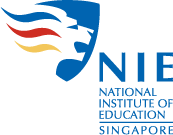Educating a young mind goes beyond just ensuring that he or she succeeds academically. In today’s highly complex and fast-changing world, some fundamentals about education still remain.
In this issue, we are reminded that disposition such as the ability to exercise self-control is found to be a strong predictor of a child’s future successful life in a longitudinal study by Professor Richie Poulton. Thankfully, the study also showed that such a trait can be nurtured through education. | Read More |
In the essay by Associate Professor Wong Meng Ee (Early Childhood and Special Needs Academic Group), we are urged to be thoughtful in approaching technology as an aid to teaching. While technology makes information easily accessible to many and allows digital learning to take place, the digital divide can still exist. Furthermore, technology cannot replace teachers when learning often depends on the quality of social interactions between a teacher and students. The importance of such social relationships in learning is reiterated in Assistant Professor Leong Wei Shin’s piece on mentorship in the NTU-NIE Teaching Scholars Programme. In the essay, Assistant Professor Leong highlighted the key attributes of effective mentors and the roles that they play in the lives of student teachers. These include inducting their student teachers into the profession and helping them to strengthen their professional identity.
In Portrait, Ms Lin Siyue, Class of 2018 valedictorian and freshly minted teacher from the first batch of TSP, shared her personal experience with her own teachers in school and how they inspired her to become a teacher. She also spoke about various challenges encountered in the early days of her career, and why she has continued to work out her relationships with her students.
While the education landscape in Singapore has changed and evolved rapidly in recent years, let us centre our focus on some of the fundamentals in education surfaced in this issue of NIEWS.
 Kehk Bee Lian
Kehk Bee Lian





